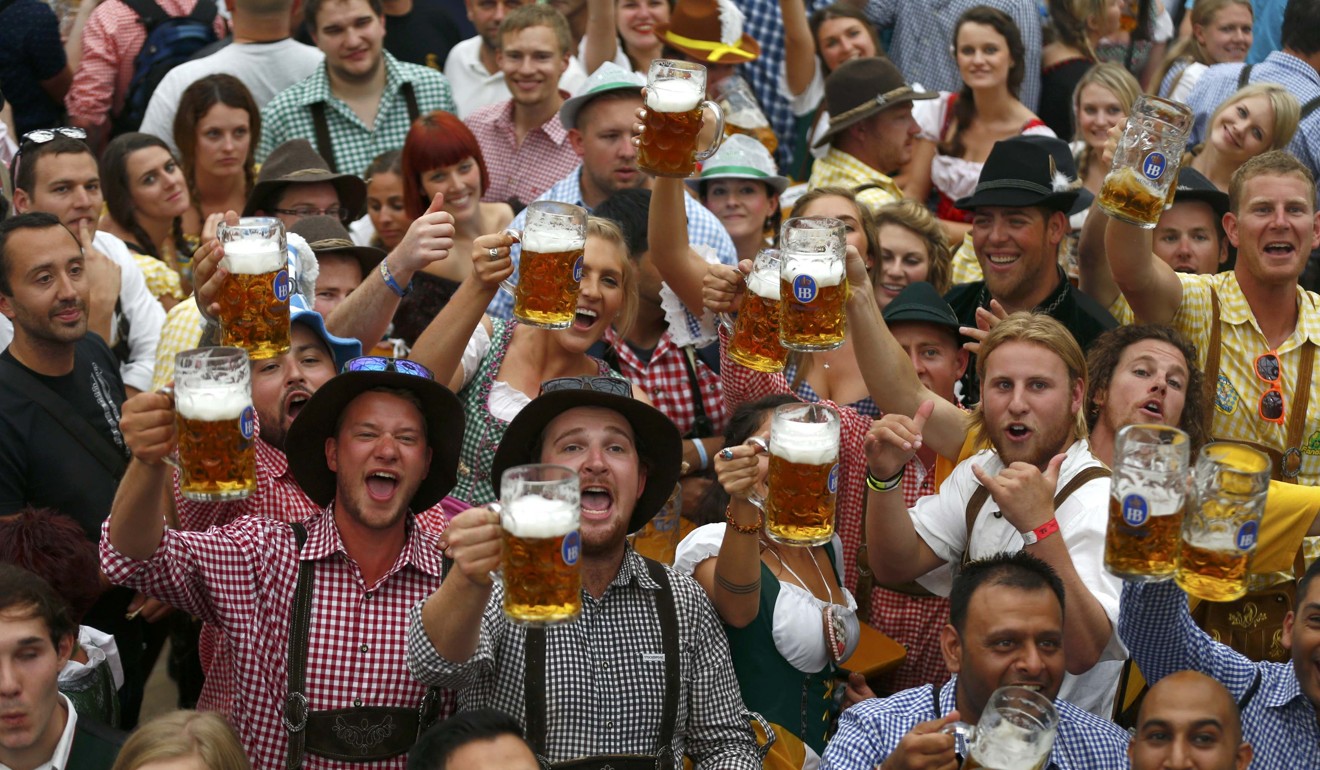
Oktoberfest, beer and e-scooters. What could possibly go wrong?
- Over 400 riders caught under influence of alcohol in Munich since vehicles legalised in June
Politicians in Munich are calling for the use of e-scooters to be restricted during Oktoberfest in response to number of people being caught using the newly-legal vehicles while drunk.
The use of electric scooters was legalised across Germany in June in the hope they may help reduce the carbon footprint of commuter-heavy urban areas.
Since then, however, Munich police have caught and reprimanded 418 people for operating them under the influence of alcohol. The scooters have the same drink-drive limits as cars.
For Oktoberfest, which starts next month, politicians are calling for restrictions on e-scooters’ access to the main festival site on Theresienwiese square and the surrounding area.
“Anyone who’s had one too many should not get on an e-scooter afterwards,” said Kristina Frank of the Christian Social Union party.
A number of cities across the country reported accidents involving e-scooters and alcohol over the weekend. In the eastern city of Erfurt, several police officers were injured in a brawl that broke out when they tried to stop a drunken scooter operator.
Four e-scooter users in Cologne were seriously injured in accidents, one of them an intoxicated 29-year-old tourist.
Other cities around Europe have had similarly sobering experiences with the new technology. Police in Copenhagen arrested 28 people over one weekend last month for riding e-scooters under the influence of cannabis and alcohol.
Paris has introduced fines of €135 (US$150) for riding electric scooters on the pavement and banned them from being parked there.

In the UK, where London is the only major European metropolis not to allow e-scooters, the government is leading a review of transport laws that could see them made legal on British streets.
“There are people who enjoy using these vehicles, but many regard them as toys rather than means of transport,” said Helmut Dedy, the head of the Association of German Cities (DST).
“We need clear rules of play and they must be binding,” Dedy said.
Providers have promised to sign a memorandum outlining rules for e-scooter use in German cities.
A recent study by the Civity management consultancy found that e-scooters were mainly used in the late hours of the day and over weekends, raising questions about their attractiveness to commuters.
Four main providers – Tier, Lime, Voi and Circ – currently provide undocked e-scooters across German cities, which can be unlocked with a smartphone and driven at a maximum speed of 20km/h on bicycle paths and roads.
Riders who stray on to pavements face a €30 fine.
As well as problems with drunken operators and vehicles being steered into pedestrian zones, local people increasingly complain about bad parking.
The Green politician Cem Ozdemir criticised Angela Merkel’s government for passing a law to allow their use without having thought through the consequences, and called for mandatory parking zones for the vehicles.
“Vienna should serve as an example,” he said.
In the Austrian capital, the e-scooter provider Bird claims to employ a supervisor for every 100 scooters, tasked with repairing broken-down vehicles and removing those left in the middle of the street.
The company also requires users to take a picture of the parked scooter at the end of their journey.

